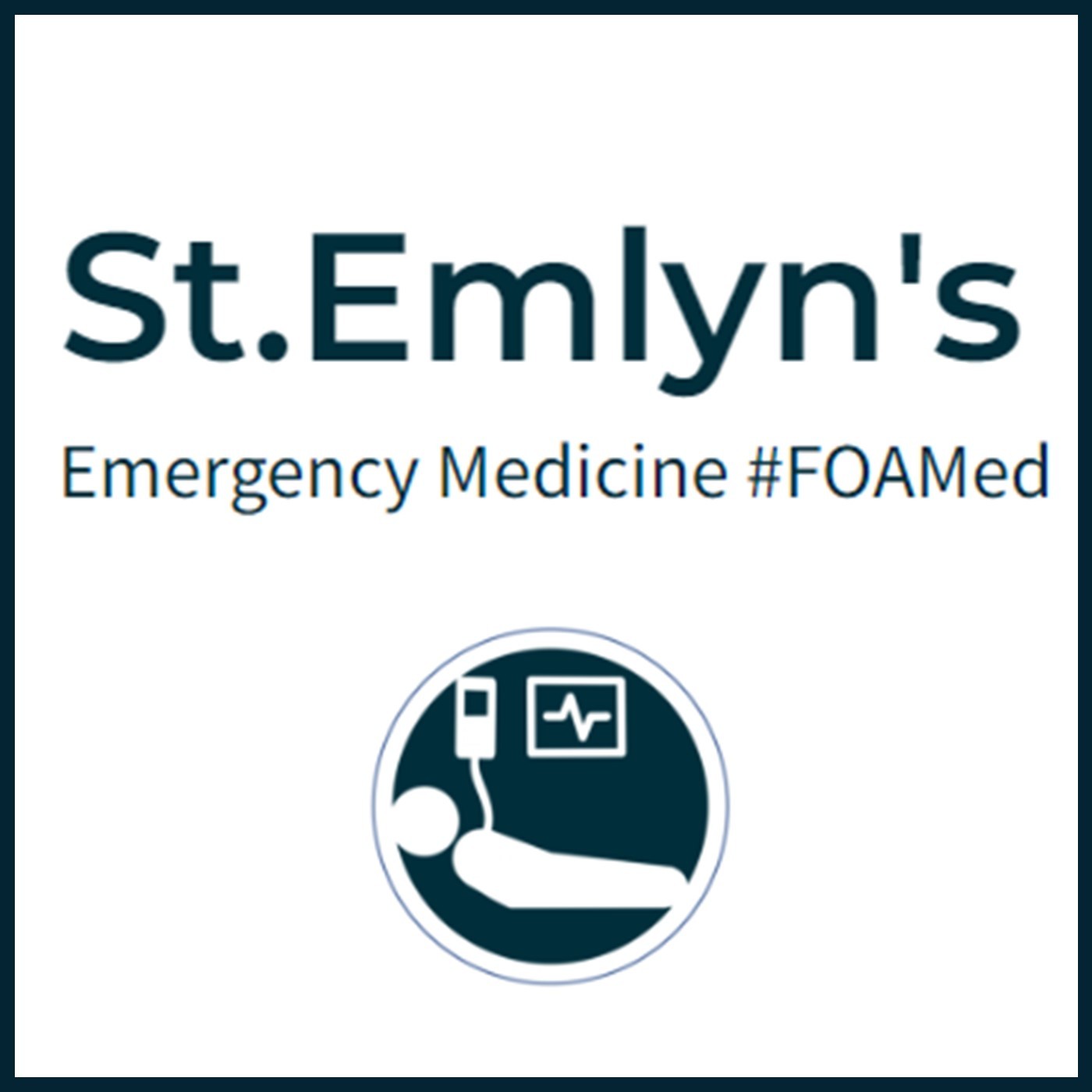
1.3M
Downloads
270
Episodes
A UK based Emergency Medicine podcast for anyone who works in emergency care. The St Emlyn ’s team are all passionate educators and clinicians who strive to bring you the best evidence based education. Our four pillars of learning are evidence-based medicine, clinical excellence, personal development and the philosophical overview of emergency care. We have a strong academic faculty and reputation for high quality education presented through multimedia platforms and articles. St Emlyn’s is a name given to a fictionalised emergency care system. This online clinical space is designed to allow clinical care to be discussed without compromising the safety or confidentiality of patients or clinicians.
Episodes

Sunday Mar 15, 2015
Ep 41 - Is trauma an elite sport? with Tom Evens (LTC 2014)
Sunday Mar 15, 2015
Sunday Mar 15, 2015
High-Performance in Trauma Care: Lessons from Elite Sports Coaching
Welcome to the St Emlyns blog! Today, we're diving into an insightful discussion from the recent London Trauma Conference, where Dr. Tom Evans shared his unique experiences and lessons learned from working with the British rowing team as a coach. Dr. Evans, a post-CCT doctor in emergency medicine and former Sydney HEMS doctor, offers a fascinating perspective on high-performance culture in trauma care, drawing parallels with elite sports coaching.
The Challenge of High Performance in Trauma Care
In trauma care, the term "world-class" is often used to describe top-tier performance. However, as Dr. Evans points out, this concept can be misleading. Unlike athletes who prepare for specific, well-defined events, emergency medicine professionals face an unpredictable array of cases daily. Thus, instead of striving to be "world-class," a more practical and applicable goal is to focus on achieving "high performance."
High performance is not an end result but a continuous process. It involves creating a culture where every team member is committed to doing even the smallest tasks as well as possible. This mindset shift from an outcome-based to a process-oriented approach is crucial for trauma teams, as it emphasizes excellence in everyday practice rather than sporadic peak performances.
High-Performance Culture: Key Components
-
Shared Mental Models: One of the key aspects of high-performance teams, both in sports and healthcare, is the creation of shared mental models. In coaching, athletes need a clear understanding of what their performance should look like. This clarity helps them execute their skills effectively under pressure. Similarly, in trauma care, standard operating procedures (SOPs) help create a shared understanding among team members. This reduces cognitive load and allows team members to anticipate actions and outcomes, leading to better coordinated and more effective care.
-
Simulation and Visualization: Dr. Evans emphasizes the importance of simulation and visualization in preparing for high-stress situations. Just as athletes use these techniques to mentally rehearse their performances, healthcare professionals can use simulation training to test and refine their responses to various scenarios. High-pressure simulations are particularly valuable as they help teams assess their readiness and make necessary adjustments to their mental models.
-
Marginal Gains and the Basics: The concept of marginal gains—small incremental improvements—is widely recognized in elite sports. However, Dr. Evans cautions against focusing solely on these gains without first mastering the basics. In trauma care, the foundational elements such as knowledge, systems, and debriefing must be solid. Marginal gains can only be beneficial when the team operates consistently at a high level. Therefore, trauma teams should prioritize getting the basics right before seeking minor improvements.
Training vs. Coaching: A Crucial Distinction
A critical insight from Dr. Evans is the difference between training and coaching. In medical education, training often focuses on imparting knowledge and passing exams. However, coaching is about enhancing performance and preparing individuals for real-world challenges. Coaches are invested in their athletes' performance outcomes and see success as tied directly to their athletes' achievements. This personalized and performance-driven approach contrasts with the often fragmented nature of medical training, where trainees rotate through multiple trainers and institutions.
Dr. Evans argues for a coaching approach in medical training. This would involve more personalized guidance and a focus on developing the skills and mindset needed for long-term success in the field. Such an approach could better prepare trainees for the unpredictable and high-stakes nature of trauma care.
Implementing High-Performance Strategies in Trauma Teams
To implement a high-performance culture in trauma care, several strategies can be adopted:
-
Institutional Support and Investment: High-performance training requires time and resources. Hospitals and healthcare institutions must prioritize training and development, even if it means adjusting schedules or reducing clinical productivity temporarily. This investment is crucial for cultivating a culture of continuous improvement and excellence.
-
Team-Based Training and Debriefing: Multi-specialty training and team-based exercises can help build a cohesive unit capable of high performance. Regular debriefing sessions after simulations and real cases are also essential. They provide opportunities for reflection, learning, and refinement of processes.
-
Focus on Human Factors: Understanding and optimizing human factors—such as communication, teamwork, and decision-making under pressure—is vital. Incorporating these elements into training and everyday practice can significantly enhance team performance.
-
Continuous Learning and Adaptation: The landscape of trauma care is constantly evolving, with new technologies and methodologies emerging. A high-performance team must be committed to continuous learning and adaptation, staying abreast of the latest developments and integrating them into practice.
Conclusion: A Call to Action for Trauma Teams
Dr. Tom Evans' insights offer a valuable perspective on achieving high performance in trauma care. By adopting strategies from elite sports coaching, trauma teams can cultivate a culture of excellence that prioritizes process, preparation, and continuous improvement. The shift from an outcome-focused to a process-oriented mindset, coupled with robust training and support, can lead to significant advancements in patient care and team effectiveness.
At St Emlyn's, we are committed to exploring innovative approaches to medical education and practice. We encourage our readers to consider how these high-performance principles can be integrated into their teams and institutions. Let's strive for excellence not just in the big moments but in every aspect of our work.
For more insights and discussions on trauma care, emergency medicine, and high-performance culture, stay tuned to the St Emlyns blog. Your feedback and experiences are always welcome, so feel free to share your thoughts in the comments below.

Comments (0)
To leave or reply to comments, please download free Podbean or
No Comments
To leave or reply to comments,
please download free Podbean App.